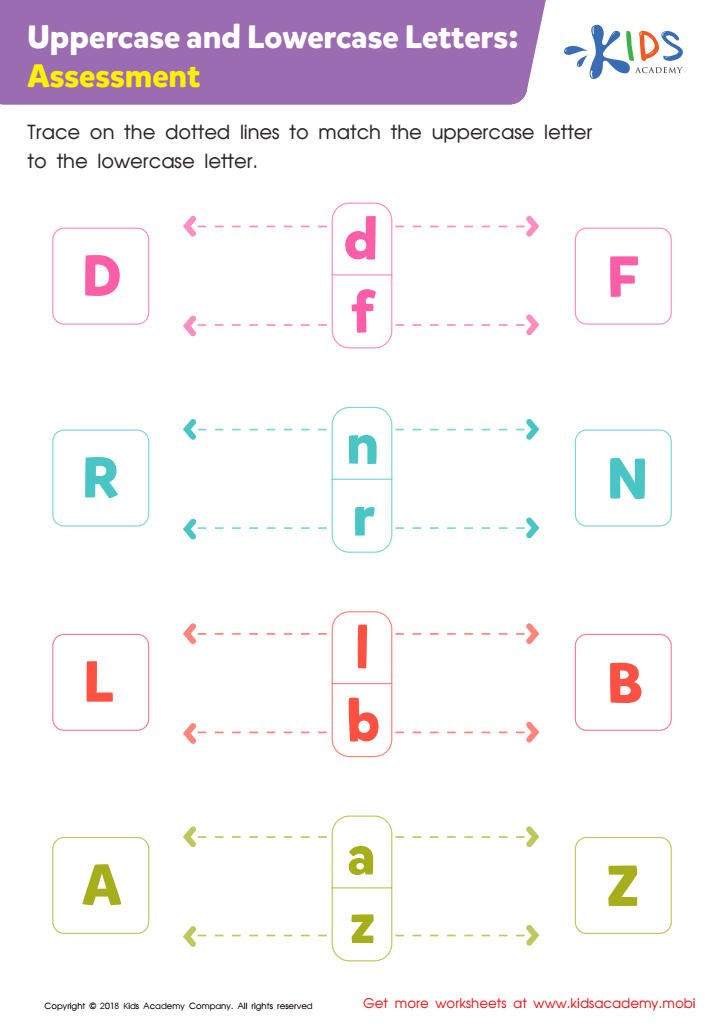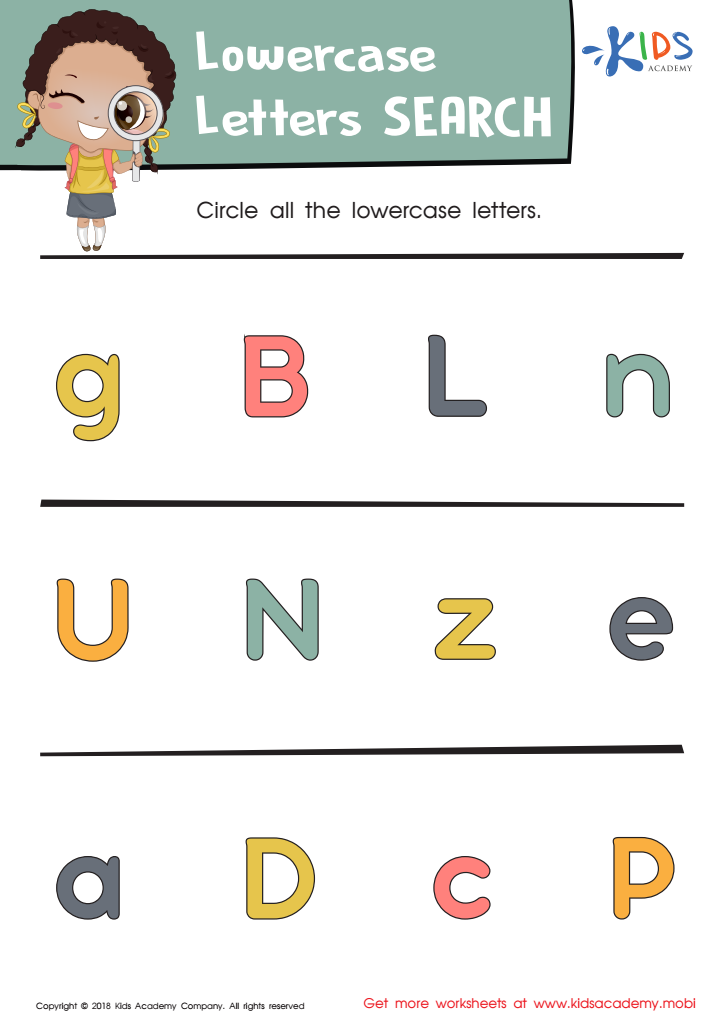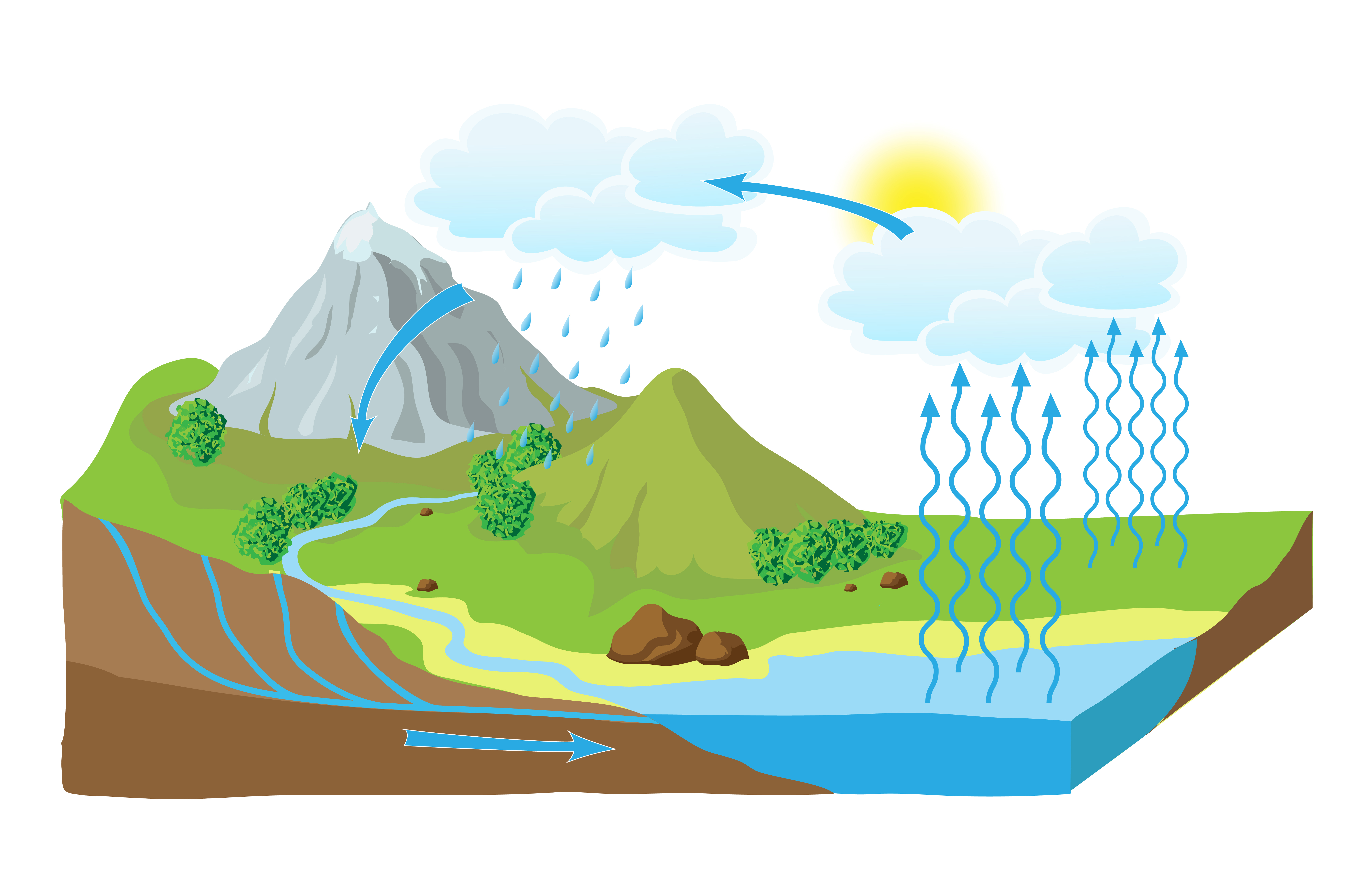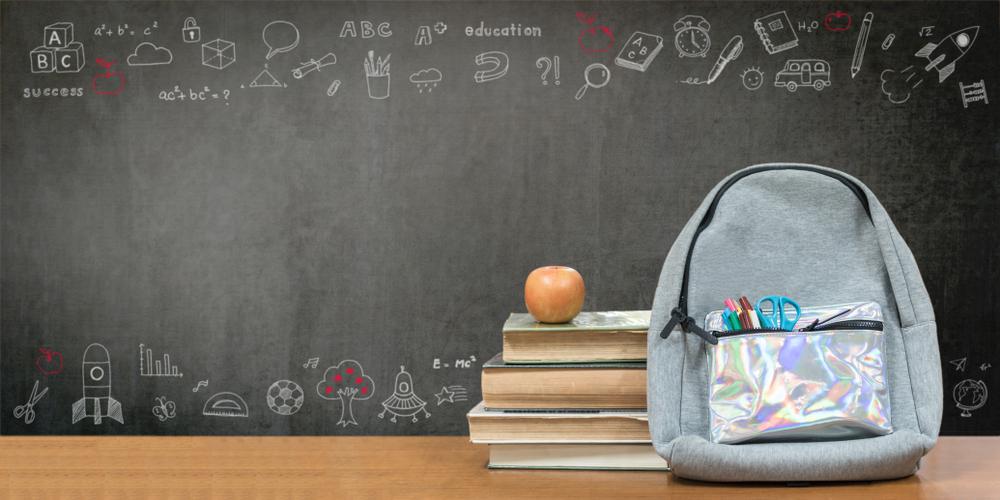Upper & Lowercase Letters worksheets activities for Kindergarten
2 filtered results
-
From - To
Upper & Lowercase Letters Worksheets Activities for Kindergarten
Dive into the exciting world of alphabets with our specially designed Upper & Lowercase Letters Worksheets Activities for Kindergarten! Crafted with young learners in mind, these worksheets provide a fun and interactive way to master the intricacies of uppercase and lowercase letters. Through a series of engaging activities, kindergarteners will develop essential reading and writing skills, laying a strong foundation for future academic success. Whether tracing, matching, or identifying letters, our worksheets promise a delightful learning journey. Get ready to watch your little ones grow in confidence as they navigate the alphabet with ease!


Uppercase and Lowercase Letters: Assessment Worksheet


Lowercase Letters Search: Assessment Worksheet
Upper & Lowercase Letters worksheets activities for Kindergarten are an essential foundation in the journey of early literacy. These worksheets are not just another task for young learners; they are pivotal in bridging the gap between recognizing letters and beginning to read and write. Here’s why these activities are incredibly useful for kindergarten students:
1. Develops Letter Recognition: Upper & Lowercase Letters worksheets activities for Kindergarten provide a structured way for children to familiarize themselves with the alphabet in both uppercase and lowercase forms. This dual recognition is crucial as it helps children understand that letters can appear in two forms but represent the same sound.
2. Enhances Fine Motor Skills: As children trace, write, and color letters on these worksheets, they are also honing their fine motor skills. This practice is vital for the development of hand-eye coordination and prepares them for more intricate writing tasks in the future.
3. Builds a Foundation for Reading: Recognizing both uppercase and lowercase letters is a stepping stone towards reading. By engaging with these worksheets, children start to understand that words can start with any letter in either form, laying the groundwork for decoding and word recognition skills.
4. Promotes Cognitive Skills: Through Upper & Lowercase Letters worksheets activities, kindergarteners are encouraged to think, compare, and contrast. This stimulates cognitive development as they learn to identify the differences and similarities between the uppercase and lowercase forms of letters.
5. Encourages Independence: These worksheets offer a chance for children to work independently at their own pace, fostering a sense of achievement and self-confidence. This autonomy in learning helps build a positive attitude towards education.
In summary, Upper & Lowercase Letters worksheets activities for Kindergarten are more than just paper and pencil tasks. They are a crucial educational tool that supports the holistic development of young learners, paving their way towards literacy with confidence and skill.

 Assign to the classroom
Assign to the classroom




.jpg)







